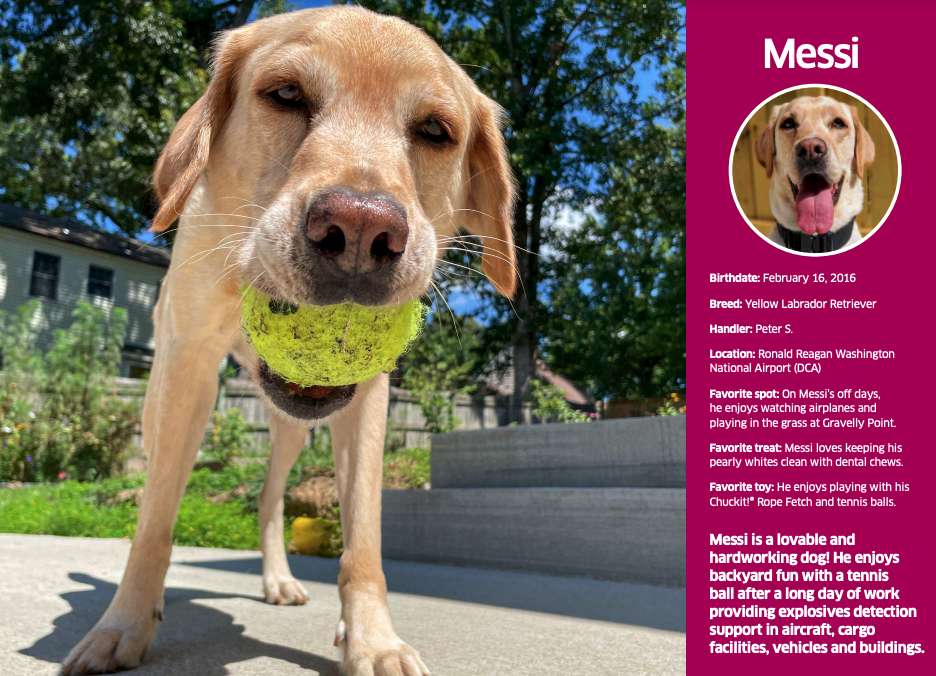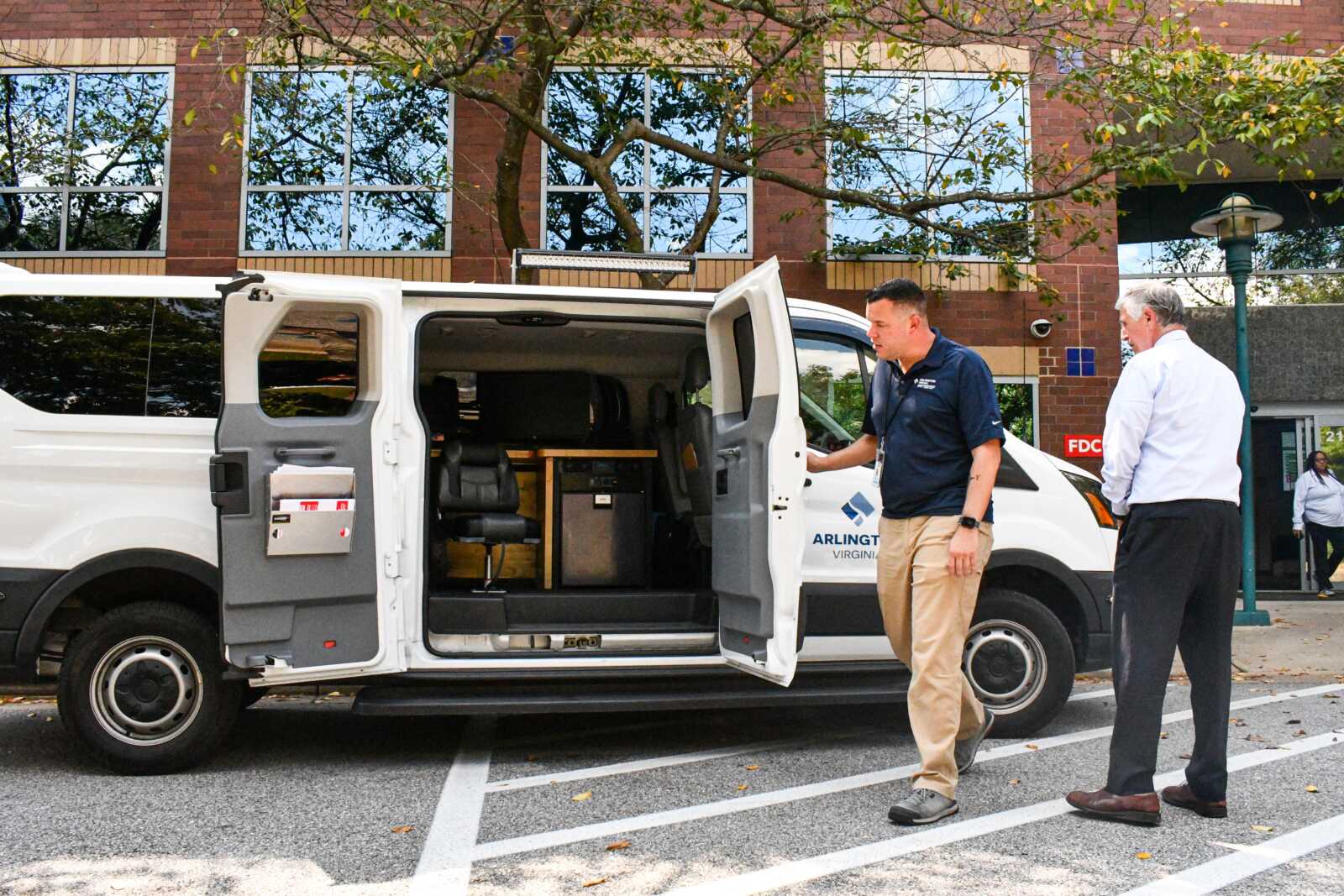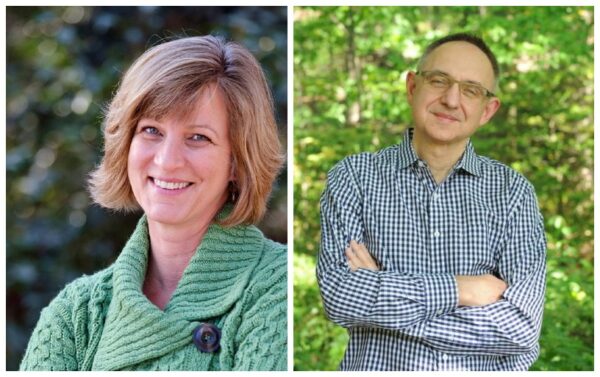
Progressive Voice is a bi-weekly opinion column. The views expressed are solely the authors’.
The editors of Progressive Voice believe a core value of progressive government is for leaders to self-examine, strengthen and innovate to enhance opportunity for every person. In that vein, we explored Democratic candidates’ approaches to leadership and decision-making as we interviewed Mary Kadera, candidate for Arlington School Board, and Takis Karantonis, candidate for Arlington County Board. The two interviews have been edited and condensed.
Mary Kadera
PV: On the election trail, what have voters told you they want in a leader?
Kadera: Some of the messages I am getting loud and clear are these:
Accountability. There is a sense on the part of many, rightly or wrongly, that there’s not a tremendous amount of accountability in terms of the School Board asking hard questions, or taking ownership of hard problems. People want to see a School Board leader asking critical questions, not in the sense of setting fire to everything the staff is doing, but the injection of healthy skepticism.
Willingness to admit missteps. It has felt to some that we talked about our school system as our jewel, and that there were no flaws in this stone. For many people, their lived experience didn’t match that, and particularly families of our English-learners or students with disabilities… parents of gifted students…it runs across a range. …Being honest about the reality is the first step to improving.
PV: What would demonstrate effective leadership, in your view?
Kadera: On a micro level, that I have taken the time to engage with someone, and I voted in a way they didn’t like, and they said, ‘I don’t agree with the decision you made, but you explained why you did that, and you heard me, and handled this is a responsive and responsible manner.’ On the macro level, it would be people having a higher level of trust in the School Board. We’re in an environment now where …it’s kind of a gotcha moment, and ‘when you do wrong, I’m going to go on social media and blast you,’ and that’s not healthy. It’s essential that the public have healthy skepticism, but also that we feel that we’re partners in improvement, and that feeling is lacking right now.
PV: Hundreds of kids did not come back to APS this year. They had the choice, and the means, to do something else. How do you balance competing needs and priorities so that we have a school system that really does “work well for every single family”?
Kadera: I’ve talked with families that made the decision to pull their kids… one category was students with disabilities, either there were medical/safety concerns, or they felt interventions their kids were getting in private school worked better than when they were in APS. The second was parents of kids who were identified as gifted, or academically high performing, and they were worried that APS would be so necessarily focused on addressing learning loss that the more advanced students wouldn’t have enough of a challenge, enough attention paid to them. To me, equity is about making sure every student has the right level of support and challenge…it has to be everybody. We are in a dangerous situation if we communicate, either intentionally or unintentionally, that public education only works for certain ‘kinds’ of students; then that’s a slippery slope to a situation where we find ourselves in the land of vouchers and privatization of education.
PV: There are things that are school-system designed, paid for… Summer Laureate would be an example, which the School Board recently did away with, in part because disadvantaged kids needed more attention and money. So when you’re allocating resources system-wide, how do you create a school system that works for everybody?
Kadera: When I look at the APS budget, I am not convinced that we have the data to understand whether we’re getting a great return on investment on our current expenditures. If equity means providing the right level of support for every student, then you would be looking at things like gifted services, which I think is tremendously underfunded. So part of the answer is freeing up funding from things that have not necessarily been effective. The second way is something other communities have done…augmenting resources through foundations that can fund innovative programs.
PV: Where is the “public” school system responsibility vs. where does the Board try to hand that off to some other entity? If you had only the school system budget to work with, how would that be delivered so that every single kid, disadvantaged or not, was getting the benefit?
Kadera: I think of ongoing, operating funds that come from local government, and funds for innovation and pilot projects as things that a foundation could fund. What happens is we want to try new things, but there’s no breathing room in our budget. Every single penny is allocated to our annual expenses.
PV: Do you believe it has to stay that way? If you say, “every penny is already allocated,” is that what you believe?
Kadera: No. But every year there has been a gap between the superintendent’s proposed budget and funding available, and we have struggled to close that gap. I believe we need to have honest and hard conversations about the true costs of operating our school system. I am personally not comfortable making the case for increased revenue until I get a better sense of how effectively we’re investing and managing the dollars we have.
PV: Suppose there was an upcoming decision where the Board felt that “X” was what it wanted to do; how might you frame that so that “getting public input” wasn’t a waste of the public’s time?
Kadera: In this case, I want to give kudos to something APS has just started, where Lisa Stengle and the Planning team rolled out their initiatives, and for each, what level of community engagement [was needed]…are we looking simply to share information, or to check our assumptions about data, or are we doing this in a collaborative way with the community… and by being explicit about those up front, that goes a long way toward getting around this sense of frustration where that hasn’t been clear.
On some kinds of decisions, we know there is a right course of action, and we need to move swiftly. To me, then it’s a communications challenge, not a decision-making challenge. It’s matter of saying, ‘We are going to do X, and this is why. We are sharing information with you. We are not looking for you to come up with an alternative proposal or lobby for something different.’ We have to manage expectations in that way.
Takis Karantonis
PV: One of the things we hear people complaining about is, ‘Why do they ask for our opinion [on issue X], if the County Board already knows what it wants to do?’ What would be your approach so the public doesn’t feel its time has been wasted?
Karantonis: Certainly political leaders have a path in mind…but you want to test your own ideas, preconceptions, what the public may say, talk to experts. What I believe people sometimes mean is, ‘While you [County Board] get good advice or strong opinions against your starter opinion, you choose to ignore them.’ I do believe one part of civic
leadership is to listen carefully, synthesize arguments, listen to all stakeholders. I believe one of our biggest deficits is that we don’t have the ability to reach all stakeholders.
PV: On “ignoring input,” two recent examples that people give would be residential parking and Missing Middle. How do you counter that?
Karantonis: On residential parking (RPP), we heard from neighborhoods who thought one-size-fits-all wouldn’t serve them, like Lyon Village and especially Aurora Highlands, because being so close to major corridors, they had increased anxiety about clogging their streets. I myself walked those places, I worked with leadership of the neighborhoods. I discovered a lot of layers and we tried to address as many concerns as we could.
I do believe we have done a better job than the previous RPP program. So we didn’t go forward with the 2-hour open parking proposal, for example. We will be evaluating how it works…see if the problem was solved…and that it doesn’t produce unintended consequences. One of the toughest parts, actually, is …to have the courage to do the after-action work and reevaluate.
PV: Has there been an after-action report on the Covid vaccine rollout?
Karantonis: …it’s too early for that, but it’s firmly in my list. We got a lot of feedback right at the beginning; we didn’t have enough [federal, state supply of] vaccines, the rationing was complicated, there was a change of electronic appointment systems–we have a good stock of things we want to revisit after Covid.
PV: On a recent example, increasing quality childcare, many participants were people of color, some were providers, some used the services. Good ideas came out, a few regulations changed, but how many slots were added, how many more providers? What was the effect of all that work?
Karantonis: I agree with that. When I say the after-action report, we are not doing that sufficiently. Right now…evaluation doesn’t permeate everything we do. On the specific example, we have created incentives for smaller operators to have a greater supply of day care, but we still have one of highest costs of day care in the nation. We have to build a common understanding, and my colleague Katie Cristol has been leading on this, of where we want to go on our childcare initiative.
PV: What ideas do you have to accomplish greater innovation and nimbleness in County Board decision-making?
Karantonis: [We need to be] creating an environment of… ‘What would it take to solve that? What would it take to accelerate the solution?’ An example: I was an early advocate of buffer lanes for pedestrians, to safely walk next to a high-volume thoroughfare. It was tough to get Arlington County staff to do a pilot, to take [away] a lane and put up Jersey barriers. We tried in two places. On Lorcom Lane, we learned how we can make it permanent, but on S. Carlin Springs, it didn’t work, so after six months, the Jersey barriers were taken down and we have to look for better solutions.
PV: People point to things like Falls Church and the railroad cottages as a “beta”–Falls Church was willing to try a different idea on these homes with zero lot lines, not change the code or zoning, just experiment, but Arlington doesn’t seem to do that. Why that reluctance?
Karantonis: Arlington is way too conservative in its legal approach to trying out new concepts. I am definitely there to fight against that mentality, especially in cases when we know the downsides are not devastating. There are different levels of risk tolerance on the Board… you have to have at least three votes. … it makes you a better “persuader,” a better leader. You not only have to persuade constituents, stakeholders and County staff, you also have to convince your peers.
PV: How do we move decision-making along more quickly without losing “little d” democracy?
Karantonis: We don’t need to take an ‘analysis/paralysis’ approach. It is good to make sure we have most of the answers to most of the things, but we cannot engage in public processes that never end. Public works, for example, take absolutely too long. This bears risks because at some point, we have such a lengthy, resource-intensive process behind us that we become very reluctant, as a community, to review and accept post-action criticism. So it is better to be comprehensive, inclusive, have a common understanding of what the goal is, make a decision, begin implementation, and have a robust system of ongoing evaluation.
PV: On Langston Boulevard…as you know, it hasn’t gotten the attention or resources from the County that Columbia Pike got, in its early days. Langston Boulevard (Lee Hwy.) has gotten a bit of a shrug.
Karantonis: I do think that the planning effort should have been staffed more and better. I do believe that we have to wrap up the process in a more timely way. As it happened on Columbia Pike, we will make a lot of adjustments; we will learn, as a community, as a government.
PV: Give an example of leadership you brought to the Board where you thought the outcome was the best?
Karantonis: On Covid response, one of the big questions was how do you get to the hard-to-reach community? At an early point in the response, about 15% of the minority population accounted for 53% of the Covid cases. So I worked hard to get regrouping on the complete vaccination committee, to get better locations, like at Arlington Mill.
Another example: Sharpening the view of how small businesses worked in Arlington, and how we might support them. I got my colleagues to support that grants and micro loans were the way to go. That was novel for economic development for Arlington.
The election for School Board and County Board is on Nov. 2, but voters can request a mail ballot until this Friday (Oct. 22). Information on how to vote can be found on the county’s website.
Recent Stories
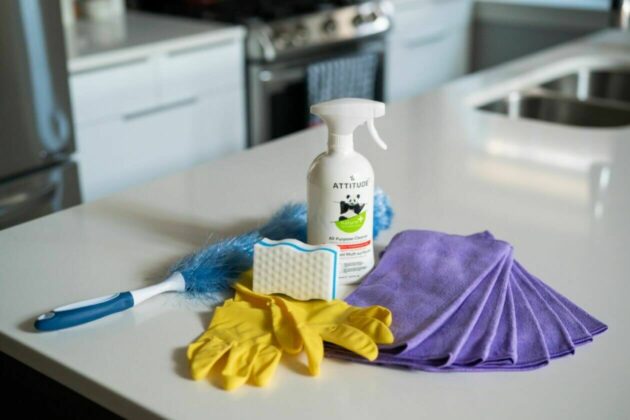
Unlike our competitors, Well-Paid Maids doesn’t clean your home with harsh chemicals. Instead, we handpick cleaning products rated “safest” by the Environmental Working Group, the leading rating organization regarding product safety.
The reason is threefold.
First, using safe cleaning products ensures toxic chemicals won’t leak into waterways or harm wildlife if disposed of improperly.
Second, it’s better for you and your family. Fragrant chemicals in surface cleaners can expose you to a similar amount of pollutant particles as a busy city road, New Scientist reported.
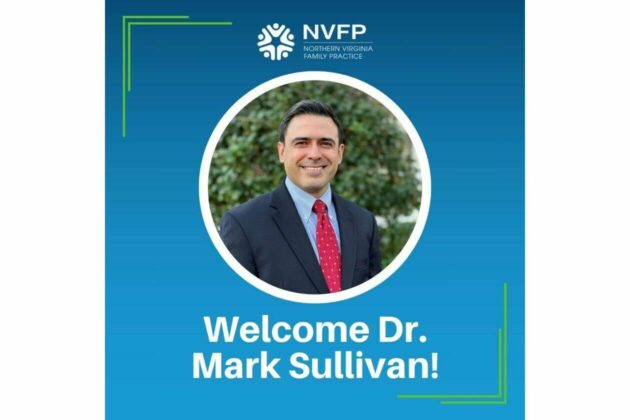
Northern Virginia Family Practice (NVFP), known for its comprehensive concierge healthcare, is thrilled to introduce Mark Sullivan, MD as the newest member of its family medicine team.
Dr. Sullivan brings a wealth of experience in family medicine, underpinned by a passion for delivering personalized, patient-centered care. He has a distinguished background in managing various medical conditions, emphasizing preventive care, health education and chronic disease management. Dr. Sullivan is adept at employing the latest medical research and technologies to enhance patient outcomes.
Beyond his medical expertise, Dr. Sullivan is committed to the well-being of his community, demonstrating this through his active engagement in local health initiatives and educational programs. His approach to medicine is holistic, focusing on integrating physical, mental and emotional health and patient education to achieve optimal patient wellness.
Dr. Sullivan is now accepting new patients at their newly established Arlington office at 2445 Army Navy Drive, Arlington, VA, 22206. The office, known for its patient-friendly amenities and state-of-the-art medical facilities, continues to provide the exceptional, personalized care NVFP is known for in its newly upgraded Arlington location.
ACFCU’s Free Homebuying 101 Webinar: Steps to Getting Pre-Approved
Are you ready to jump into homeownership, or have you started considering it but don’t know where to start?
Financial preparation is key when thinking about purchasing your first home and the first step to getting pre-approved. Join ACFCU for
Sweeney Todd
A victim of a gross injustice that robbed him of his wife and child, Sweeney Todd sets about exacting a terrible revenge on society.


